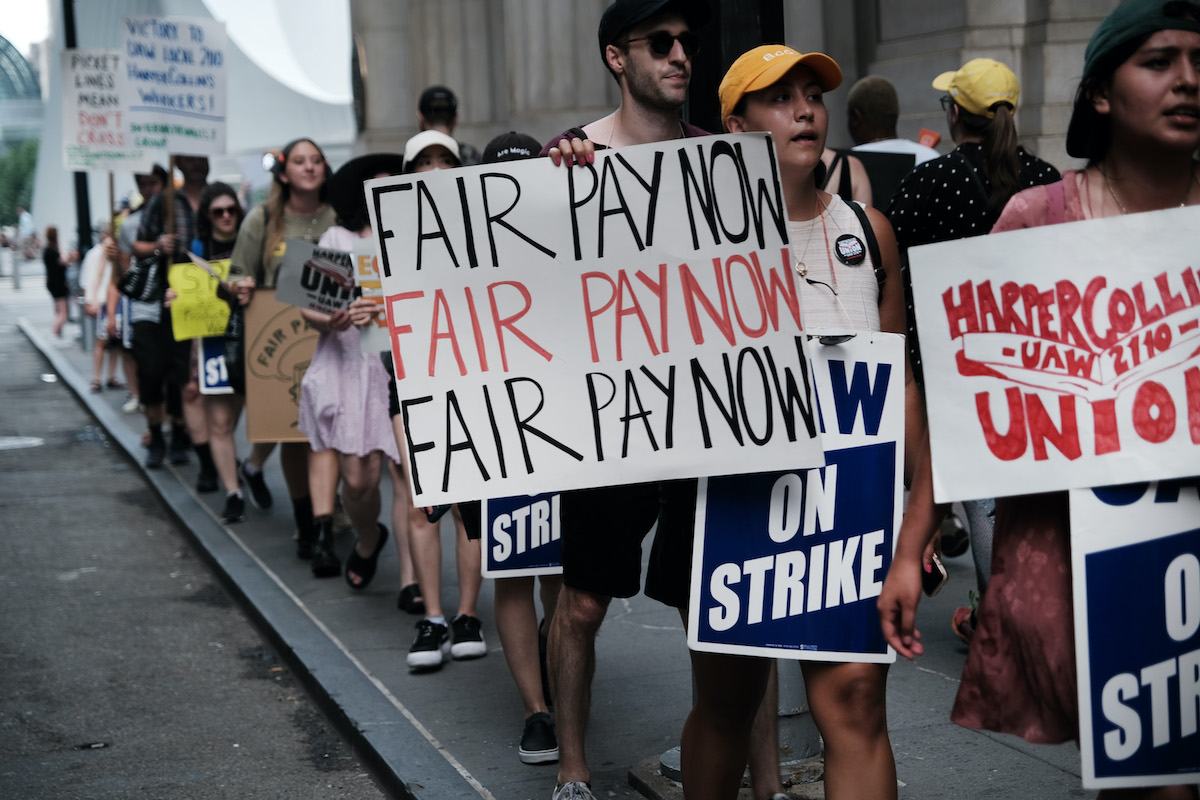Contractor Accuses HarperCollins of Refusing To Pay Out for Work Already Published

The HarperCollins union strike ended in February of 2023, but one contractor’s allegations suggest that the major publishing company’s treatment of its workers hasn’t improved. HarperCollins is one of the largest publishing companies in the world and is among the “Big Five” publishing companies that dominate the U.S. industry. In November of 2022, HarperCollins employees represented by the United Auto Workers Local 2110 (UAW) union initiated a strike. Approximately 250 employees joined in the strike across the company, with workers from marketing to editing departments participating.
The strike came after employees worked for almost a year without a contract after negotiations failed to establish a satisfactory new agreement. These workers were largely looking for fair compensation, higher entry-level wages, family leave, union protection, and greater workplace diversity. With the support of several authors, the strike lasted three months before ending with the signing of a new agreement between HarperCollins and the union. The agreement promised higher wages, lump sum payments for full-time workers, and some union protections. UAW described it as a “fair contract,” and it will remain in effect until 2025.
However, five months later, the company isn’t just being accused of paying its workers unlivable wages but of potentially not paying its workers at all.
Joshua Gonzales accuses HarperCollins of refusing to pay him
Author Joshua Gonzales has been documenting his experiences with HarperCollins since mid-June. Gonzales is the author behind the memoir Keep Sweet: My Homemade Recipe for a Fulfilling Gay Life, who reportedly signed a contract to do some work for HarperCollins in March and did some marketing for Soman Chainani’s new book Fall of the School for Good and Evil. According to Gonzales, his work was published and has been used by HarperCollins/Chainani since April 3. He says that per his invoice, his payment was due to come in by April 22. However, he posted to Twitter on June 14 to reveal that he had not yet been paid for the work.
Additionally, in his Twitter thread, he claimed he had difficulty getting into contact with HarperCollins and that the company seemed to be stalling. While he filed a complaint with the NYC Department of Consumer and Worker Protection (DCWP), he explained that these complaints take time to process. On June 20, Gonzales posted another thread to update his followers on the situation, revealing he still had not been paid.
He also tagged Chainani to ensure he was aware of the situation and that his book was profiting off of the work of someone who hadn’t been paid. Chainani isn’t responsible for HarperCollins’ actions, but the fact he allegedly shared the work Gonzales did on his social media accounts without Gonzales profiting from it does mean he’s entangled in the situation, too, and could potentially have some influence on its outcome.
The latest update Gonzales provided was on June 21. He revealed that the DCWP was processing his complaint. Gonzales indicated he will be looking to sue HarperCollins for violating the Freelance Isn’t Free Act, seeking double damages and a fine for HarperCollins. He acknowledged that going the legal route is scary and likely to be a long and tiring process, but it may be necessary to avoid this happening to someone else in the future.
HarperCollins has not responded publicly to Joshua Gonzales’ allegations, but they are very concerning, considering the company’s history. Freelancers supported the HarperCollins employee strike, as calls arose for them to withhold work and decline new contracts for its duration, and now it’s important they also receive support for bettering and raising awareness of their work situation.
(featured image: Spencer Platt/Getty Images)
Have a tip we should know? tips@themarysue.com